How are you enjoying Rebecca? Has it set the mood for an eerie October?? 🙂 Whether it’s given you goose bumps or just an unsettled feeling, Rebecca is one book with so much to discuss! If you’ve been following along on our @larsbookclub instagram, we’ve asked questions here and there as we’ve posted. Here are a few more, along with more reading suggestions if you loved Rebecca!
Also, head to the blog to print out our lovely artwork for the month! It was created by the talented Michelle Christensen
Download the Rebecca Book Club Printable Here!
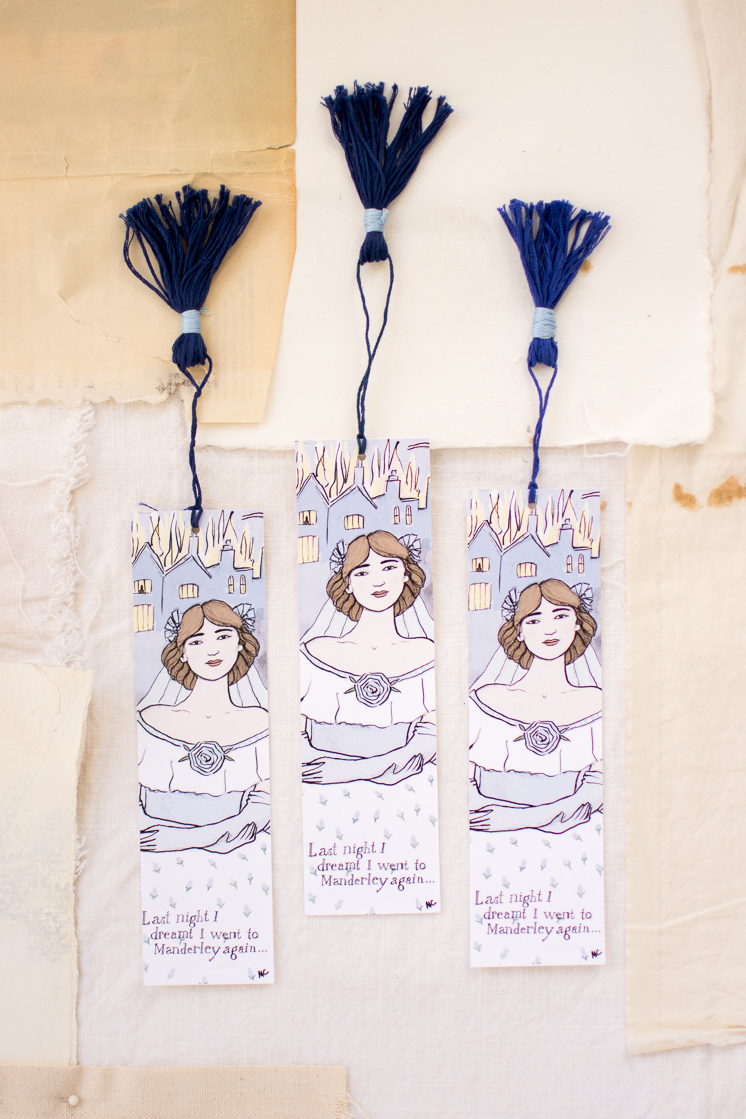
2. Were you aware that Rebecca is a somewhat biographical story? Du Maurier’s husband was previously married to a dark, glamorous woman named Jan Ricardo who committed suicide by throwing herself in front of a train. Jealousy and insecurities began for Daphne when she found love letters from Jan to her husband still in his possession years later. In fact, Du Maurier called this book a “study in jealousy”. Why and how do you think this is so?
3. Having read Rebecca more than once now, I’ve been able to catch the author’s foreshadowing – clues in the story that tell you what’s coming, or the true nature of Rebecca’s character. Did you notice any?? (For example: The narrator’s sense of peace when she burns Rebecca’s name and inscription in her poetry book; The ironic names of Happy Valley, or the boat named “Je Reviens” – “I come back”; Descriptions of Rebecca by Ben – “Tall and dark she was…gave you the feeling of a snake.”; Fireworks at the party, where “Manderley stood out like an enchanted house, every window aflame…”)
4. A major theme throughout Rebecca is identity. Rebecca is physically no longer alive, but is present everywhere – in everyone’s memory, in every room, every object, in every place the narrator goes, in every thought she has. The menacing Mrs. Danvers even says, “Do you think she can see us, talking to one another now? Do you think the dead come back and watch the living?” What does this sayabout the power of a person’s memory or legacy? Also, the narrator was never given a name, mainly because du Maurier felt she couldn’t find one that was appropriate! How does giving no name to the narrator affect her identity?? Does it diminish her presence? What do you think?
5. **SPOILER ALERT** Rebecca has been compared to the story Jane Eyre, a book that is considered the height of a “Gothic” story. A young, inexperienced girl marries an older man tortured by a dark secret, (for Maxim, the guilt of murdering his wife: for Rochester, the guilt of locking up his tormented wife) and the only way to rid themselves of her presence or memory and find true happiness is the cathartic, cleansing fire in the end. What do you think?? This is fascinating to me since Jane Eyre is another favorite classic. Do you agree with our narrator when she says in Chapter 2, “Happiness is not a possession to be prized, it is a quality of thought, a state of mind”?
If you enjoyed Rebecca, you might like:
My Cousin Rachel or Jamaica Inn by Daphne du Maurier
We Have Always Lived in the Castle by Shirley Jackson
The Turn of the Screw by Henry James
Frankenstein by Mary Shelley (Last year’s October book club pick!!)
Photography by Clara Jones | Illustration by Michelle Christensen



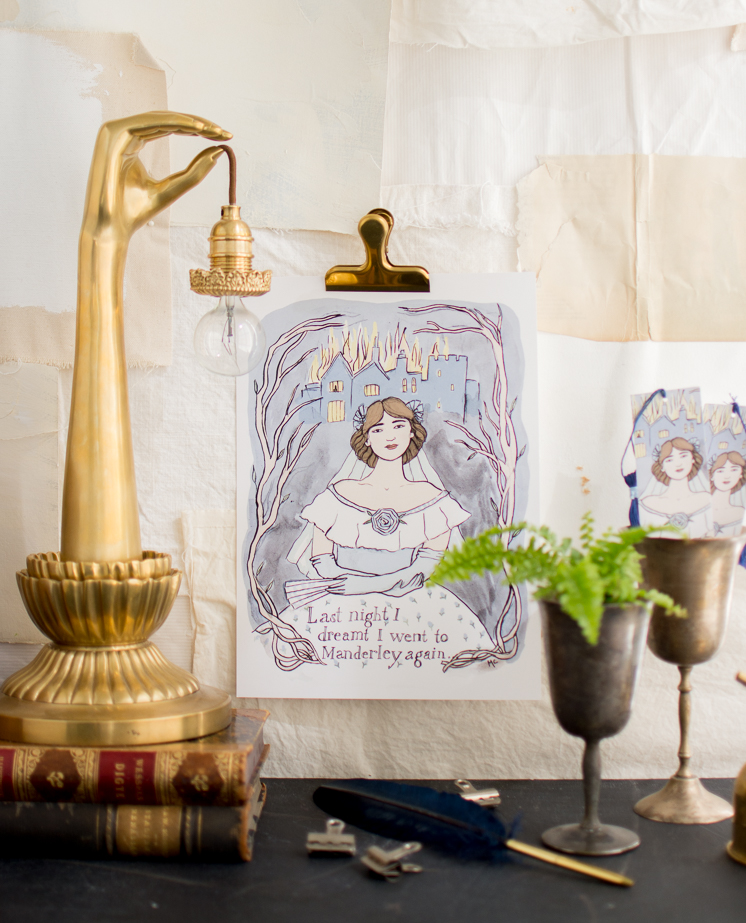
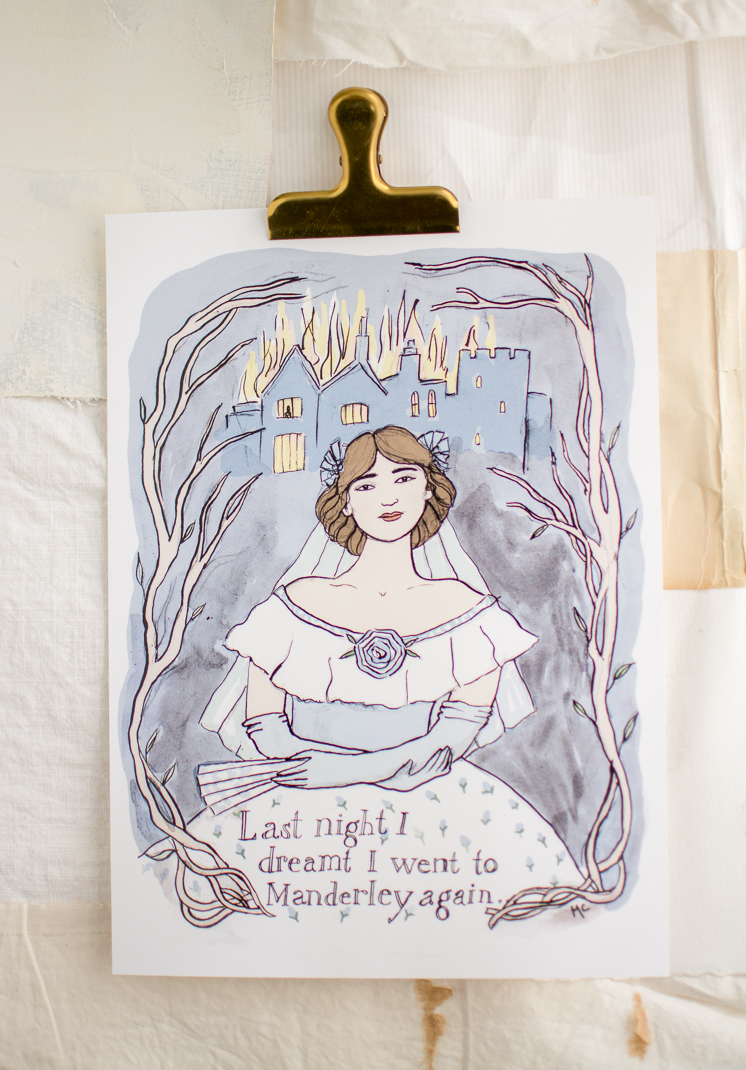
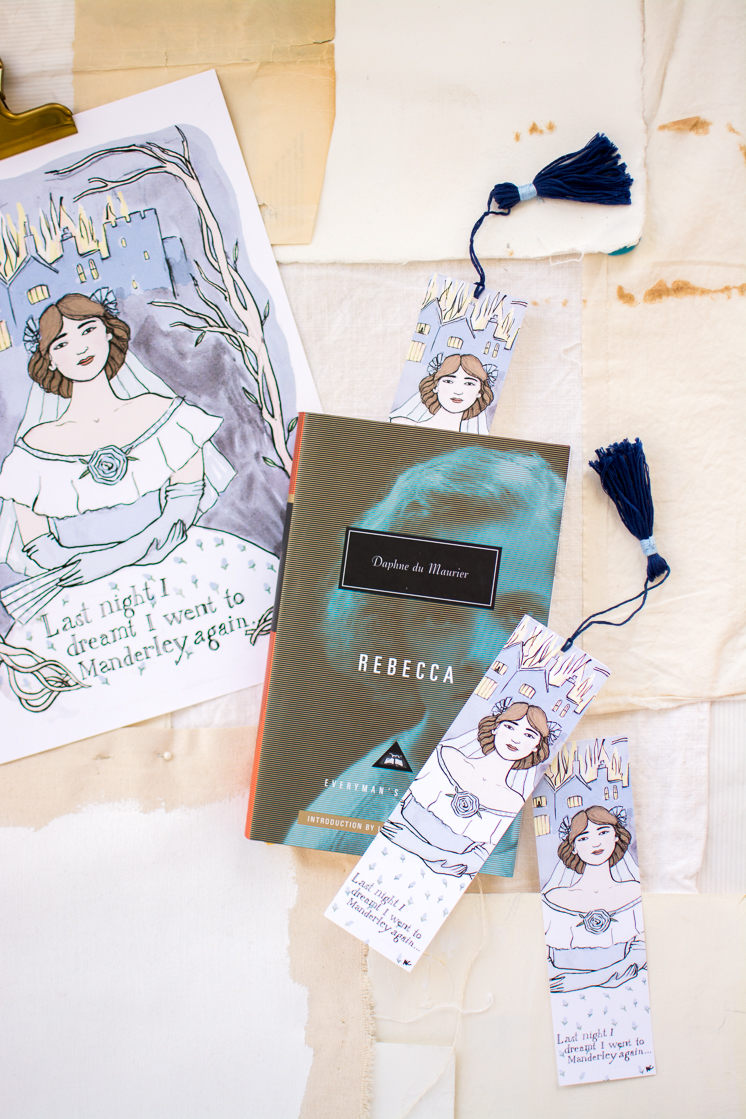
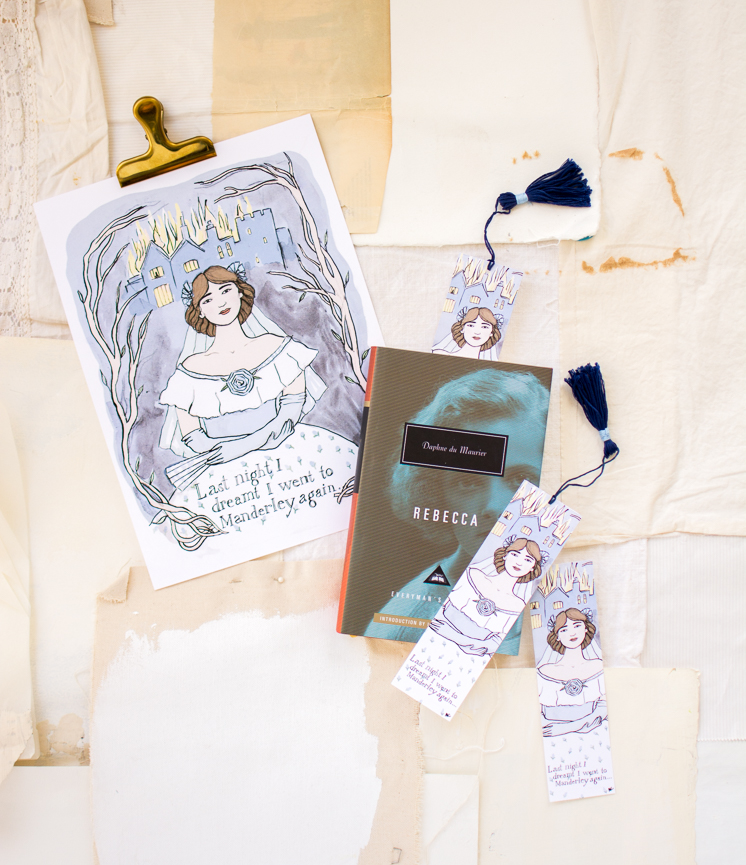
Comments